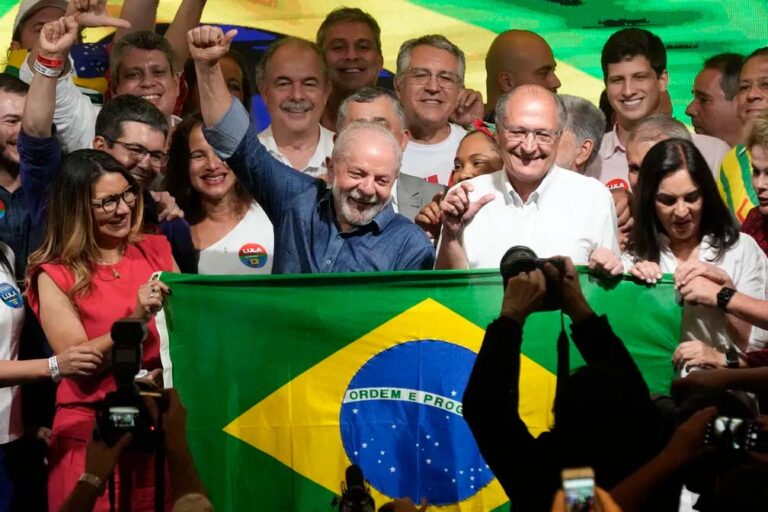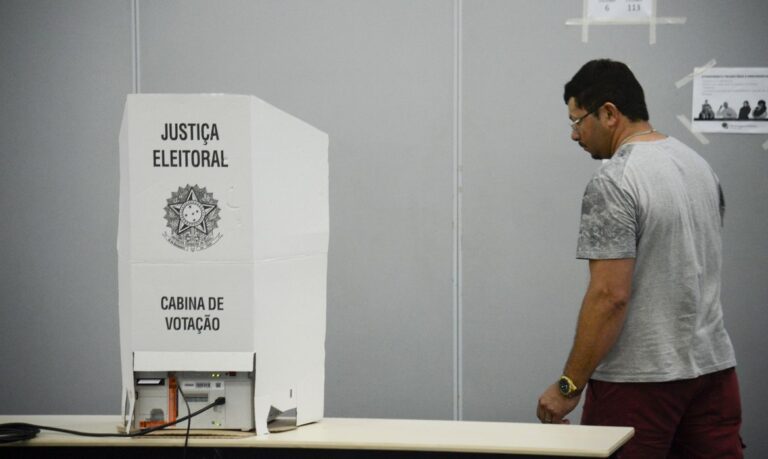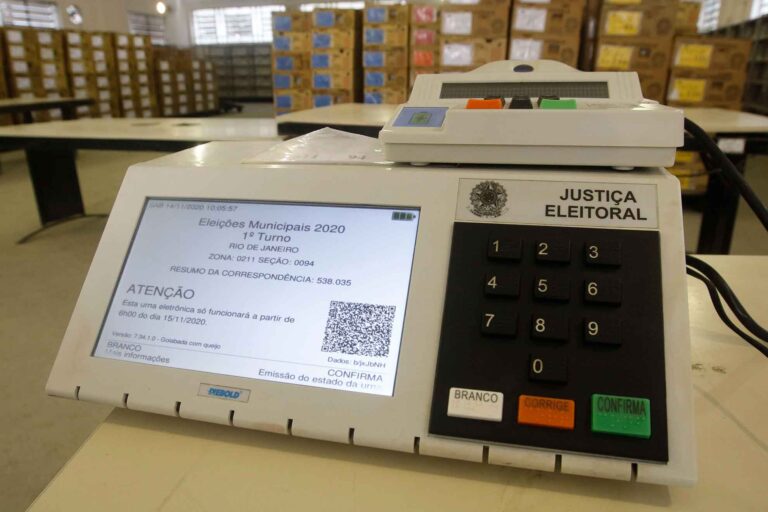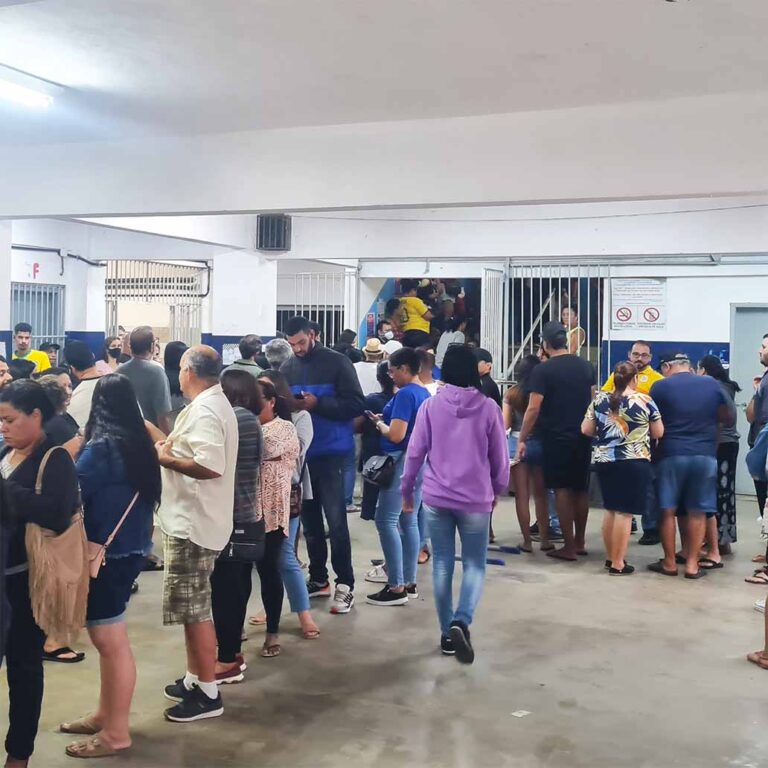Curious to understand how the elections in Brazil work? Discover the essential vocabulary and commonly used expressions during elections. Learn terms like "eleitor" (voter), "candidato" (candidate), and expressions like "boca de urna" (exit poll), which are used during the festival of democracy.
Let’s now introduce a little more about how the elections in Brazil work, explaining important terms and expressions in this democratic process. If you have any questions about understanding the text, don’t worry! We recommend checking out the Essential Vocabulary section below, where we explain the main words used during the elections.
The Elections in Brazil
The elections in Brazil are a very important moment for the country's democracy. It is during this period that Brazilians choose their mayors and councilors, who will govern their cities for the next 4 years. Therefore, as it is a very important event for Brazilians, it is essential for Portuguese learners to be able to talk about the subject.
In this post, you will discover how the elections in Brazil work and learn more about the electoral process to better understand the conversations that take place during this time. We will explore common words like "eleitor" (voter) and "candidato" (candidate), as well as more informal expressions such as "voto de cabresto" (controlled vote) and "boca de urna" (exit poll). This way, you will not only improve your Portuguese but also gain a better understanding of the Brazilian political system.

What are Municipal Elections in Brazil?
The municipal elections in Brazil take place every four years. During these elections, Brazilians vote to elect two types of representatives: the mayor and the councilors. The mayor is responsible for managing the city, making important decisions about public transportation, healthcare, education, and other areas that affect residents' lives. The councilors, on the other hand, are responsible for creating and passing local laws, which also impact people's daily lives.
The municipal elections are very important because the decisions made by mayors and councilors directly influence the quality of life in cities. All Brazilian citizens over the age of 16 can participate as voters, meaning they can vote to choose who will govern.
These elections take place in all cities of Brazil at the same time, and voters use the electronic voting machine to register their votes. If the mayor does not win more than 50% of the votes, a new vote called the second round may be held between the two most voted candidates.

How Does the Electoral Process Work in Brazil?
The electoral process in Brazil is one of the most advanced in the world. Elections take place every two years, alternating between municipal elections (for mayors and councilors) and general elections (for president, governors, senators, and deputies). To vote, Brazilians use the electronic voting machine, a device that allows votes to be recorded quickly and securely.


If no candidate for mayor wins more than 50% of the votes in the first round, a second round will take place on October 27. In this case, the two most voted candidates will participate in a new election, where the candidate with the most votes is declared the winner.
The body responsible for organizing and supervising the elections in Brazil is the Superior Electoral Court (TSE), which ensures that the entire process is fair and transparent.
Essential Vocabulary for Talking about Elections
Knowing the right words is very important to understand the elections in Brazil. Here are 10 words and their translations to help you learn more about the electoral process:
Eleitor: A person who votes in the elections.
“Os eleitores vão às urnas no domingo para escolher seus candidatos.”
“The voters go to the polls on Sunday to choose their candidates.”Candidato: The person who participates in the elections to try to win a position, such as mayor or councilor.
“Os candidatos fazem campanhas para conseguir votos.”
The candidates campaign to get votes.Urna Eletrônica: A machine used to vote in Brazil. .
“O Brasil utiliza a urna eletrônica desde 1996.”
“Brazil has used the electronic voting machine since 1996.”Prefeito: The city leader who manages services and makes decisions.
“O prefeito cuida dos serviços públicos, como transporte e saúde.”
“The mayor manages public services like transportation and health.”Vereador: People who create and approve laws in the city. ong>: Pessoas que criam e aprovam leis na cidade.
“Os vereadores discutem e aprovam as leis municipais.”
“The city councilors discuss and approve local laws.”Votação: O ato de votar e escolher representantes.
“A votação acontece no domingo.”
The voting takes place on Sunday.Apuração: Contagem dos votos depois da eleição.
“A apuração dos votos é feita rapidamente com a urna eletrônica.”
The vote counting is done quickly with the electronic voting machine.Segundo turno: Segunda votação se nenhum candidato conseguir mais de 50% dos votos.
“Haverá segundo turno para a eleição de prefeito.”
There will be a runoff election for the mayor.Campanha Eleitoral: Período em que os candidatos apresentam suas propostas.
“A campanha eleitoral começou há três meses.”
The election campaign started three months ago.Santinho: Pequeno papel com as informações dos candidatos distribuído durante a campanha.
“Os santinhos são distribuídos nas ruas pelos candidatos.”
The campaign flyers are handed out in the streets by the candidates.
Expressões Informais Usadas nas Eleições
Nas eleições no Brasil, além do vocabulário mais formal, existem várias expressões informais que são muito usadas pelos brasileiros. Estas expressões fazem parte do dia a dia das eleições e são importantes para entender as conversas mais informais.
Voto de cabresto: Esse termo vem da época em que os votos eram controlados por fazendeiros ou líderes locais que forçavam seus trabalhadores a votar em determinado candidato. Hoje, a expressão é usada para se referir a qualquer situação em que alguém é forçado ou manipulado a votar de uma certa maneira.
Exemplo: “No passado, o voto de cabresto era muito comum em áreas rurais.”Boca de urna: Essa expressão se refere à prática de tentar convencer os eleitores a votarem em um candidato específico logo antes de entrarem na seção de votação. Isso é ilegal no Brasil.
Exemplo: “A polícia prendeu pessoas fazendo boca de urna perto da escola.”Voto em branco: Quando o eleitor escolhe não votar em nenhum candidato. O voto em branco não é contabilizado como válido, mas é registrado.
Exemplo: “Muitos eleitores estão insatisfeitos e preferem dar um voto em branco.”Voto nulo: É quando o eleitor intencionalmente anula seu voto, por exemplo, digitando um número inválido na urna eletrônica.
Exemplo: “Algumas pessoas fazem voto nulo como forma de protesto.”
Conclusion

As eleições no Brasil são um momento importante de exercício da democracia. É a oportunidade que os brasileiros têm de escolher seus representantes por meio do voto, uma ferramenta essencial para garantir a participação de todos na construção de um país mais justo. Com o voto, cada cidadão expressa sua opinião e exerce sua liberdade de escolha. Para você, estudante de português, entender o processo eleitoral brasileiro também é uma ótima maneira de se conectar mais profundamente com a cultura e a sociedade do Brasil. Continue praticando o vocabulário e as expressões que aprendeu aqui, e esteja preparado para discutir esse importante evento democrático com fluência!





